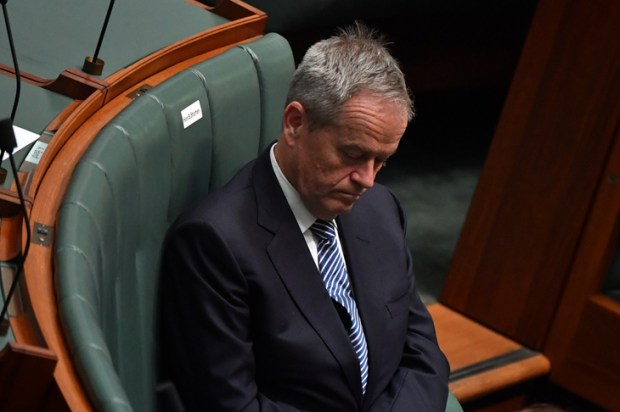While the issue of terrorism and how best to engage Muslims will remain a potentially divisive issue within the government, there is the growing rise of another ideology of resentment, in symbiosis with Islamism and Muslim victimhood, which is the white identity politics of anti-immigration groups.
It overlaps with debates about race and often clearly illustrates how accusations of racism are largely about class sneering with Muslims or other ethnic groups used as cover, evidence that multiculturalism is sometimes the racism of the anti-racists.
This was illustrated late last year in association with Cronulla riot memorials during clashes between vigilante anti-racists justifying violence to take on anti-Muslim groups. One anti-racism group even called itself antifa, referring to anti-fascism, but its connotation was closer to the intifada.
The nose turning, sneering is particularly notable in the depiction of anti-immigration groups such as Reclaim Australia, flush with pictures of tattooes, flags and piercings. The background laughter at ignorant bogans is virtually audible off the page.
It seems that by engaging in outward expressions of concern for ethnic groups, and thereby distancing one self from the terrible and unsophisticated people that don’t, you can go on and enjoy the advantages of white privilege as inner city progressives do.
The problem and misjudgement is that by focusing on privilege and denouncing insecurity emanating from the working classes, more fuel is added to the fire and legitimate resentment can transform into more dangerous hate.
As a psychiatrist working in western Sydney, my patients are a mix of newly arrived migrants and blue collar workers. I have had several patients with involvement in anti-immigration organisations.
One spends his days fighting an insurance company for perceived injustices surrounding his worker’s compensation claim, from injuries sustained while working in a since closed factory. Meanwhile he is overwhelmed by the influx of Africans and Pacific Islanders when he visits the local shopping mall. He is even more incensed when he notices NGO workers using resources on newly arrived refugees while he feels wronged and neglected.
Another is a young man in his twenties who was raised by a devoted single mother. He pines for his absent Serbian father with whom he has a conflicted relationship. To channel his longing for authority and certainty, he formed a group with local friends who are all fatherless called the Slavic brotherhood. They believe in stronger protections for European traditions, but are usually lost in drugs and failed job endeavours.
The problem of racism is in part a problem of what to do with a generation of men that may have once worked in blue collar jobs but will increasingly lack the skills to participate in an advanced, service economy. They are also the group least likely to manage the gender transition to be both more emotionally vulnerable and perhaps even seek work in the growing caring sector, be it in nursing, child or aged care.
They may not have channeled their diffuse resentment into identity politics until progressives, Muslims and other ethnic groups asked them to focus on the supposed privileges embedded in their whiteness. The debates around racial discrimination or Adam Goodes all end up focusing on race as the main marker of identity. We are lucky advocates for this group have been limited to the likes of former fish and chip vendors like Pauline Hanson and not more rabid, billionaire moguls like Donald Trump. This may change if the manufacturing base continues to slide and the promise of innovation does little to improve the prospects for blue collar workers.
For an example from academia often mirrored locally, in UCLA colour blindedness or not recognizing ethnicity is seen as a ‘micro-aggression’ and may attract administrative punishment. For whites, it is naïve to expect people to identify with their ethnic tribe and then expect them to sacrifice their interests and be dissolved into the growing majority of minorities.
The university examples are evidence that the trend is extending beyond the working classes. For example, there are reports white student groups are emerging throughout the country’s universities to combat what they see as their growing marginalisation in campus life. This has overlaps with recent UK studies showing the young, white male scores the lowest of any gender, age or ethnic group when focus groups are asked about desirable characteristics.
Conservative thinker Reihan Salam writes in Slate of an ‘assymetrical multiculturalism’, whereby minority groups are encouraged to assert their group identity and defend their interests while the majority group are strongly discouraged from doing the same. Outward expressions of Vietnamese, Greek or Muslim pride are welcome, but not so for Anglo-Saxons. When white people with several generations of ties wave flags or sing the anthem too loudly, the fear is that it denigrates or reduces the Australian-ness of minority groups.
Salam argues that because the white majority are denied the option of celebrating their ethnic heritage, they are reduced to championing essentially ideological traits like individualism and the rule of law, stripped of any cultural content. This is very clear in exhortations to celebrate the achievements of the West for example, as Tony Abbott and others have done, to much chagrin from opponents. The grievance politics that originated from the Left now encompasses all interest groups and is a big contributor to what often feels like a dysfunctional, unworkable system. It is a challenge to classical liberals and threatens to divide and further dilute the primacy of the individual.
The magnified resentment and disruption that the working classes are experiencing, predominantly but not exclusively white Anglo-Saxon racially, is real and must be seen as a legitimate priority within social cohesion policies, lest broad based concerns are narrowed and sharpened into race based enmity.
Got something to add? Join the discussion and comment below.
Dr Tanveer Ahmed is a western Sydney based psychiatrist
You might disagree with half of it, but you’ll enjoy reading all of it. Try your first month for free, then just $2 a week for the remainder of your first year.










